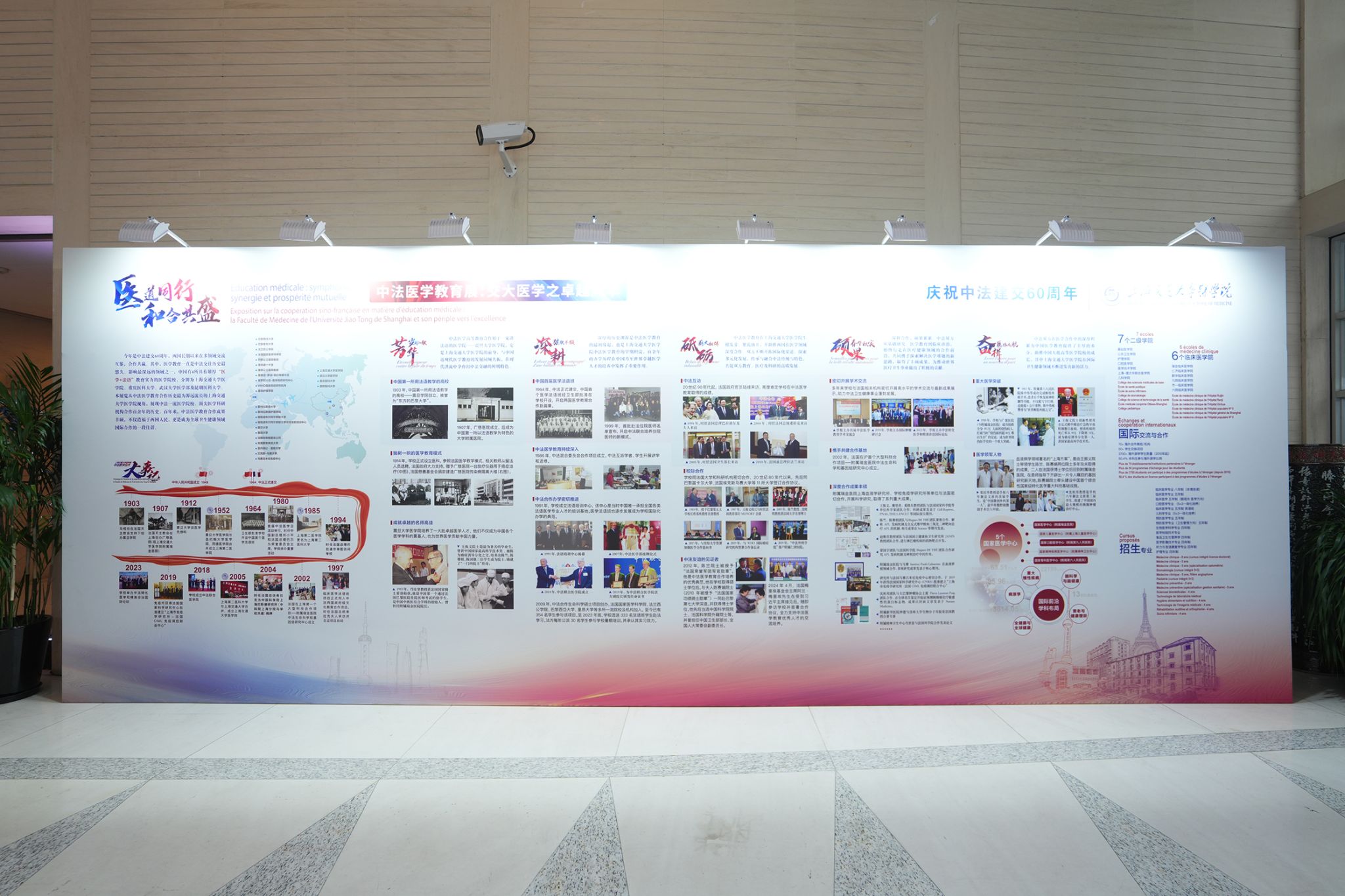This year marks the 60th anniversary of diplomatic relations between China and France. The field of medical and health exchange has been one of the longest-standing and most influential areas in China-France relations. The collaboration between Shanghai Jiao Tong University School of Medicine (SJTUSM) and top French universities and research institutions has endured over time and stands as a model of international cooperation in health. To strengthen Sino-French cooperation and communication in medical education and industry, SJTUSM, in collaboration with Xinmin Evening News, the French National Academy of Medicine, Université Paris Cité, and Université Claude Bernard Lyon 1, held the China-France International Symposium on Medical Health on October 12.
The opening ceremony was attended by prominent Chinese and French figures, including Chen Zhu, academician of the Chinese Academy of Sciences; Wu Qianyu, Inspector of the Shanghai Municipal Health Commission; Joan Valadou, Consul General of France in Shanghai; Romain Jacquet, Health, Social Affairs, and Labor Counselor of the French Embassy in China; the Chinese Chair of the symposium, Fan Xianqun, Chancellor of SJTUSM and academician of the Chinese Academy of Engineering; the French Chair, Marc Delpech, academician of the French National Academy of Medicine; Chen Saijuan, Chief Scientist of the National Facility for Translational Medicine (Shanghai) and academician of the Chinese Academy of Engineering; and Liu Ke, Secretary and President of Xinmin Evening News.
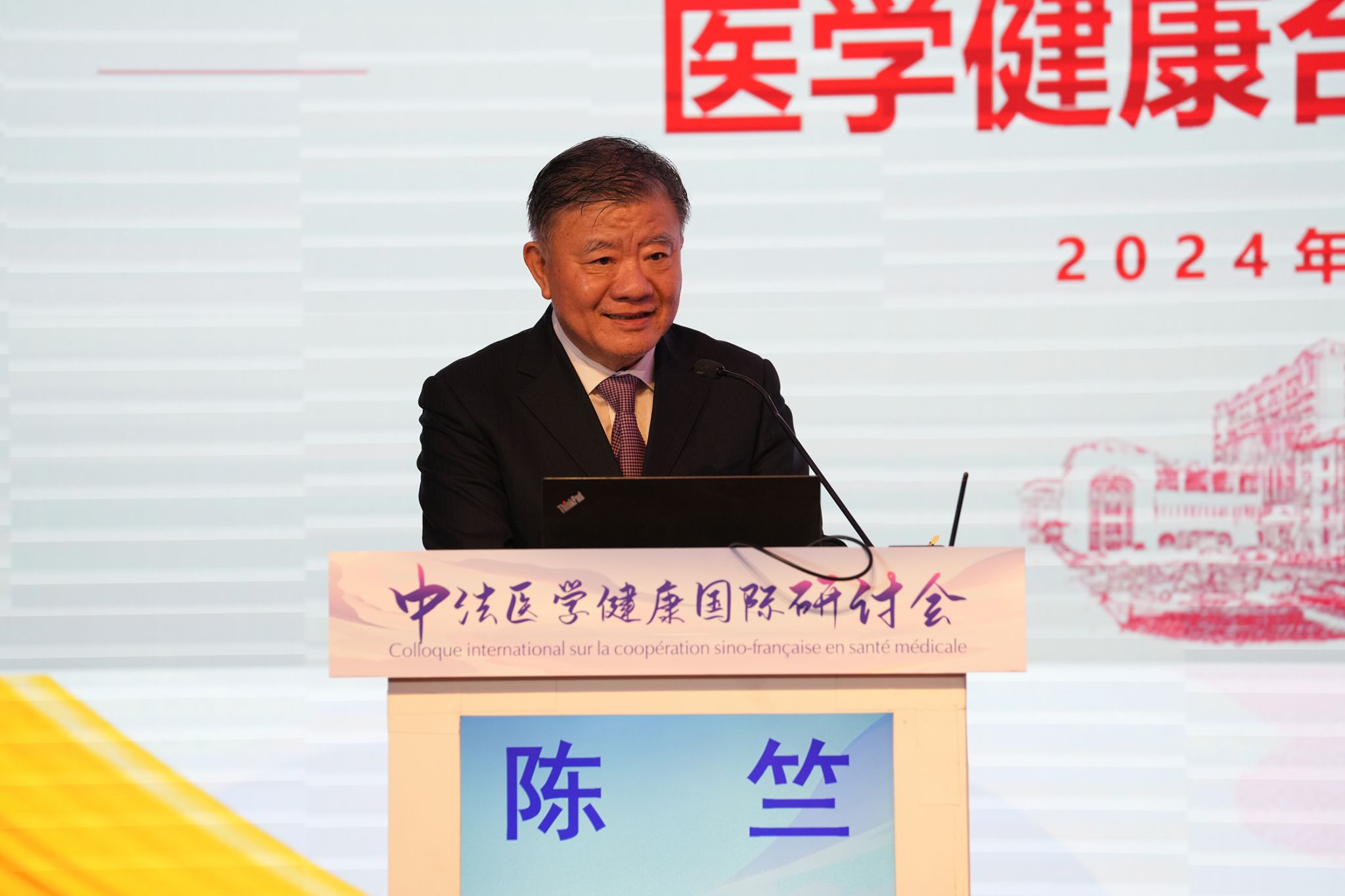
At the opening ceremony, Chen Zhu delivered a keynote report titled “Prospects for China-France Medical Health Cooperation and Exchange for the Next 60 Years.” In his address, he reviewed the progress of medical health cooperation between the two countries since the establishment of diplomatic relations in 1964, highlighting achievements in scientific research, disease prevention, and healthcare service. He acknowledged challenges such as cultural differences, unequal resource allocation, and global health issues, urging both countries to enhance their cooperation to tackle global health challenges. He emphasized the importance of policy dialogue, talent cultivation, cultural exchange, and technological innovation, envisioning the next 60 years as a period of deepened trust, scientific advancement, and global health governance between China and France.
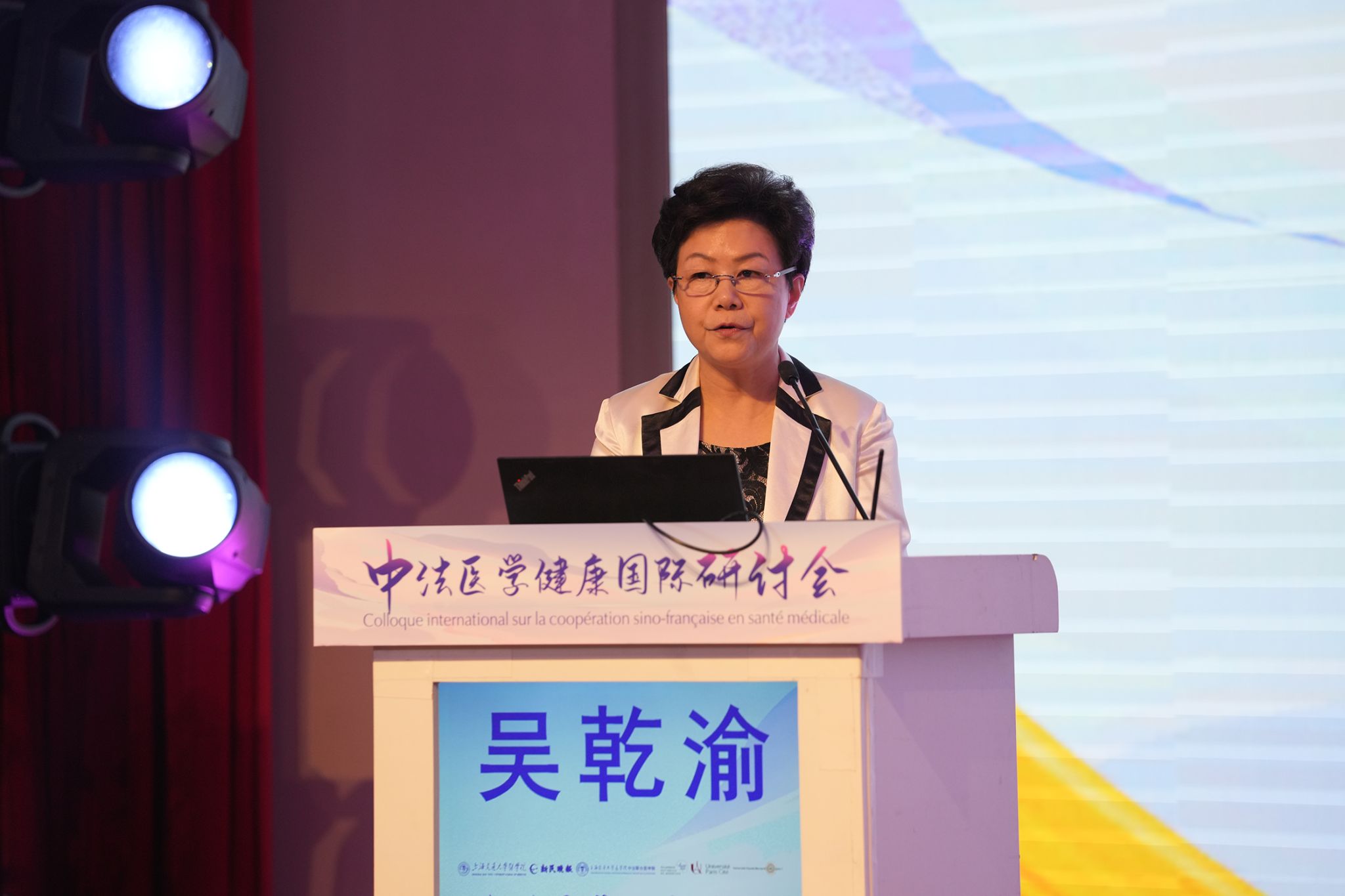
Wu Qianyu noted that this symposium, which focuses on medical education innovation, hospital management and patient service, and industry-academia cooperation, aligns closely with the current priorities of the Shanghai Municipal Health Commission. She expressed hope for fruitful discussions with French peers on key issues in health and medicine, advancing exchanges and cooperation in education, healthcare, and research.
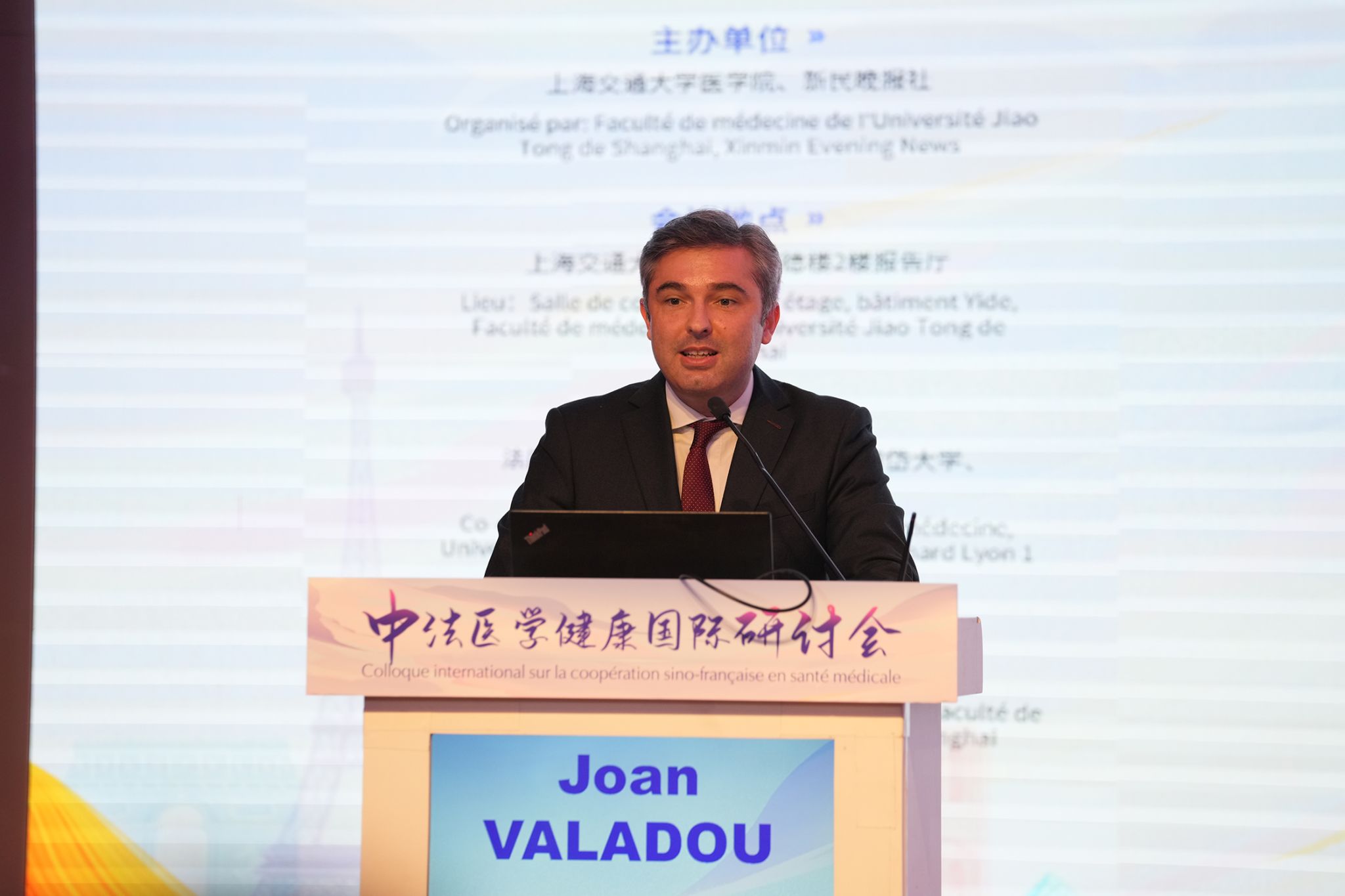
Consul General Joan Valadou congratulated the participants, noting that decades of solid connections between China and France in medical training and academic exchange have created a bridge between fundamental research and clinical application, as well as public health policy and innovation. He expressed confidence that the symposium would further deepen these connections.
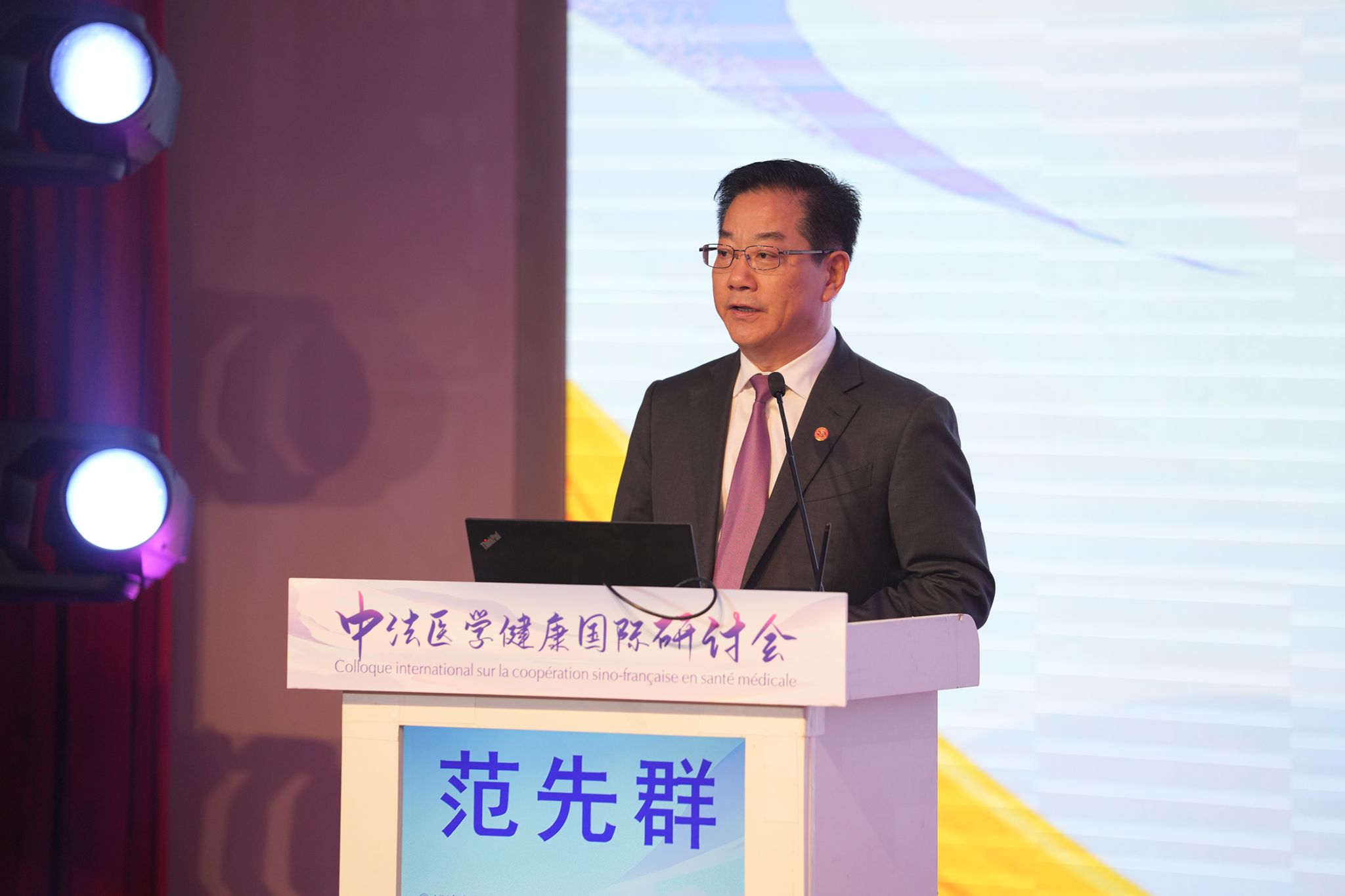
In his speech, Fan Xianqun highlighted the long-standing collaboration between SJTUSM and top French universities and hospitals, calling it a celebrated story in China-France health cooperation. He recounted how SJTUSM was the first to launch a medical French program in China following the establishment of diplomatic relations in 1964, training nearly a thousand outstanding medical professionals to date. Looking forward, SJTUSM aims to strengthen cooperation with France in medical education and healthcare, exploring new models of medical talent cultivation and preparing globally competitive, culturally adept professionals.
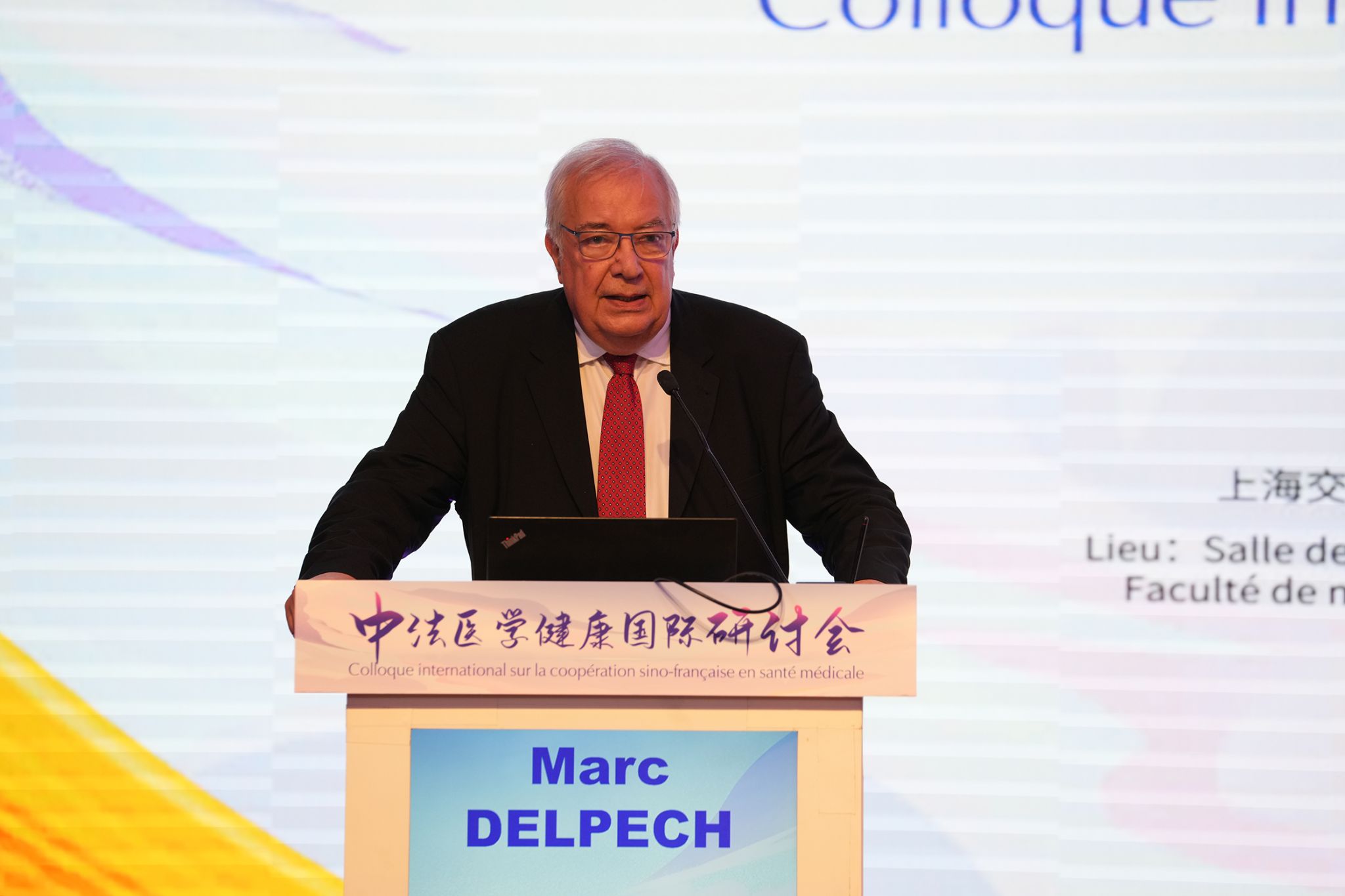
Marc Delpech remarked on the impressive progress in Sino-French medical exchanges, expressing his honor to be part of it. He noted that the founding of the China-France Joint Medical School at SJTUSM has established a valuable platform for advancing medical science and technology. He hoped that the collaboration would continue to provide students with high-quality educational resources, supporting the growth of talented individuals and driving progress in China-France medical exchange.
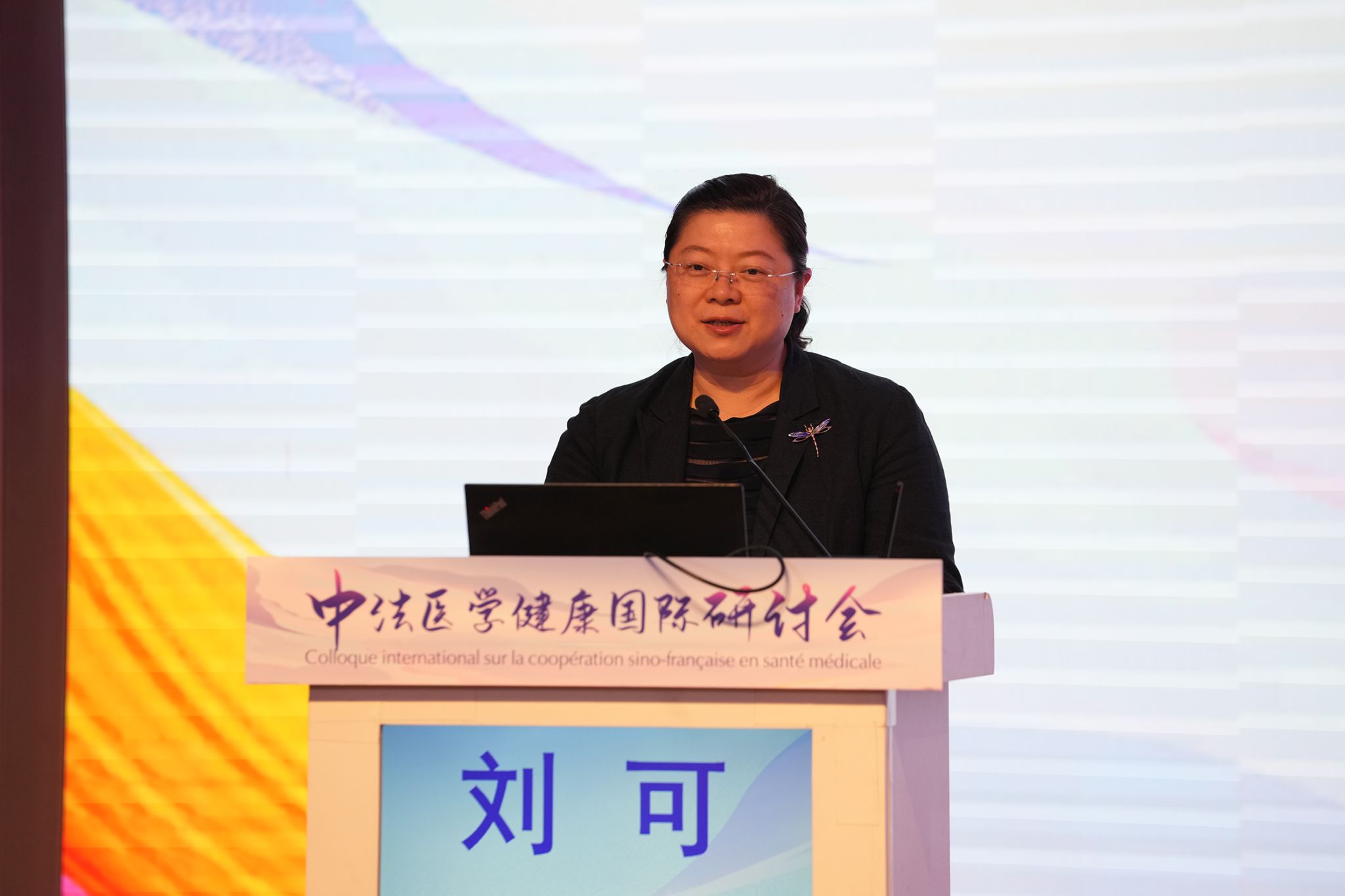
Liu Ke expressed that, as China and France celebrate 60 years of diplomatic relations, their partnership will surely continue to flourish. She also noted the 10th anniversary of President Xi Jinping’s call for Shanghai to advance as a global innovation center, emphasizing that this symposium, themed “Collaboration, Innovation, Win-Win, and Excellence,” will shape the future of medical science and contribute to global health.
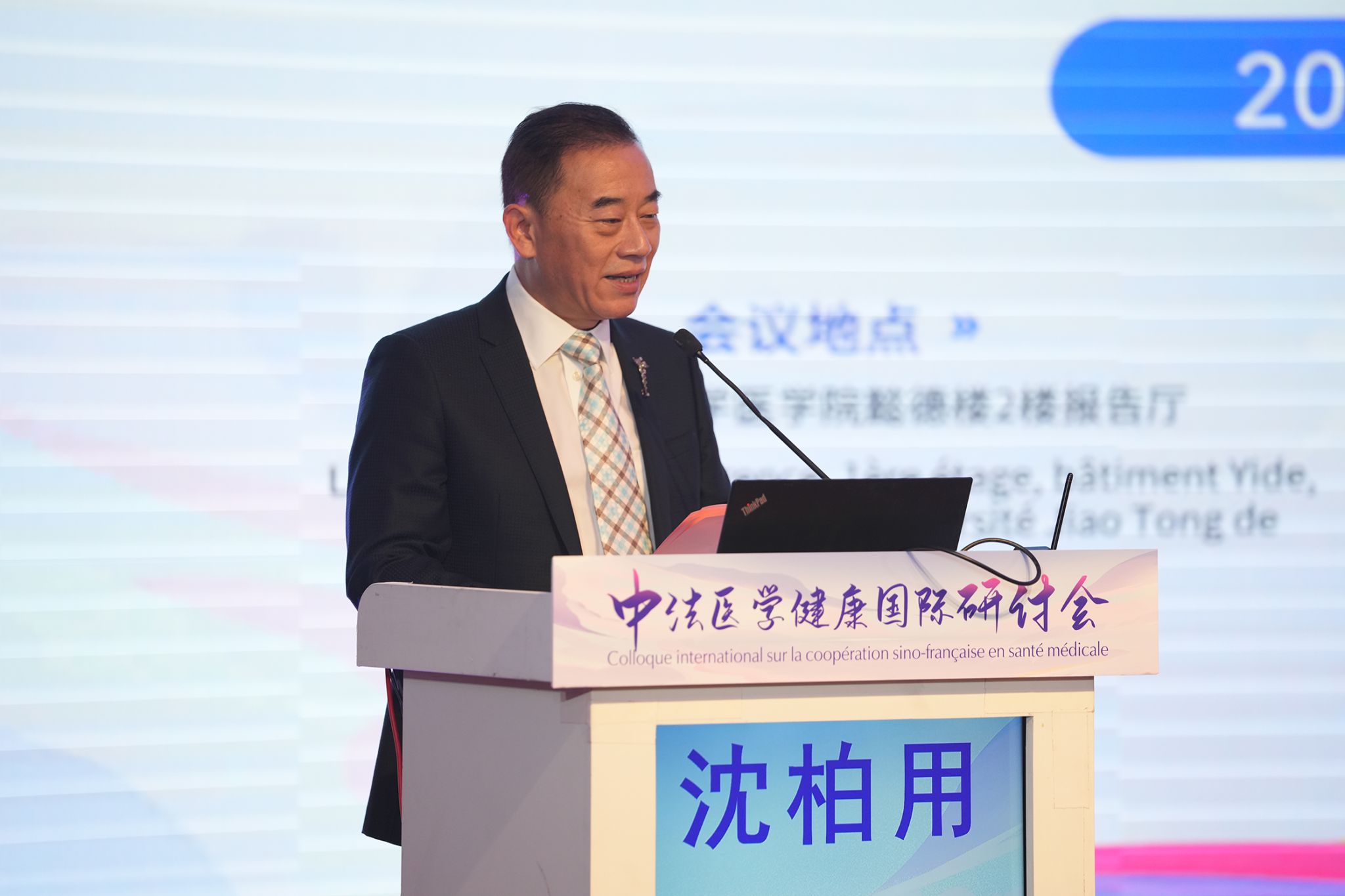
Shen Baiyong, Executive Dean of the China-France Joint Medical School of SJTUSM and Vice President of Ruijin Hospital, presided over the opening ceremony.
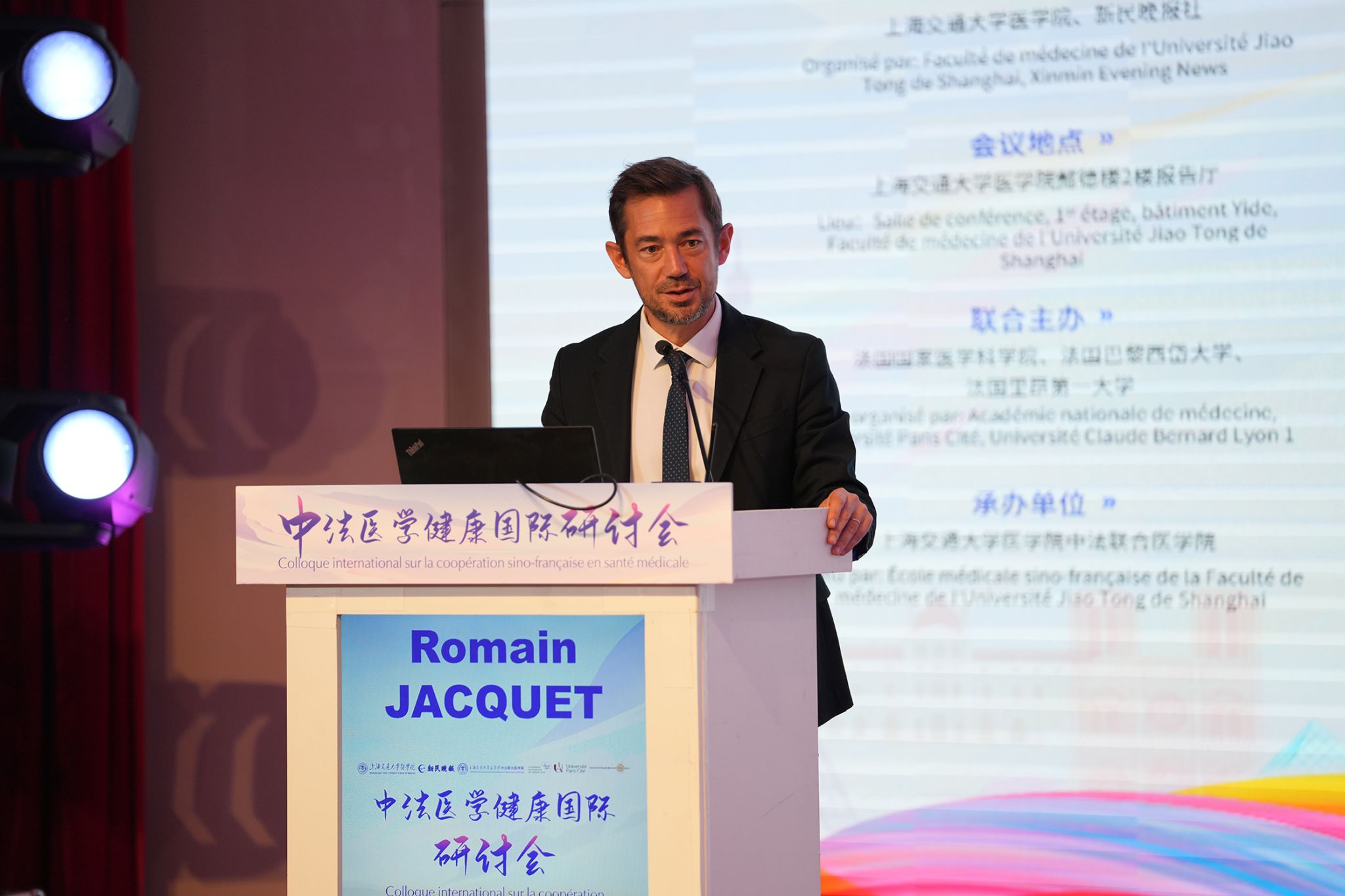
Romain Jacquet also delivered a keynote speech.
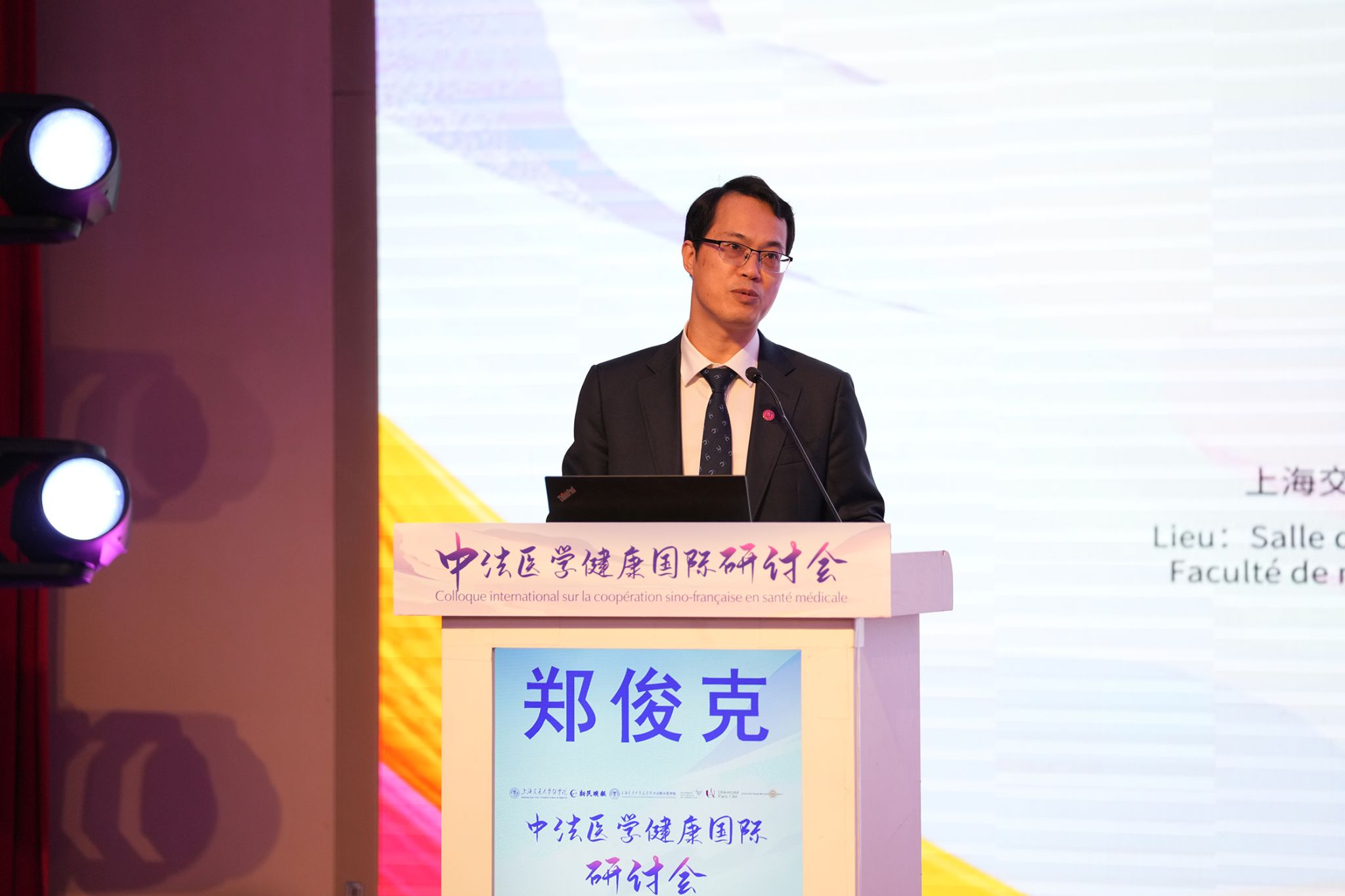
In his closing remarks, Vice Chancellor Zheng Junke summarized the achievements of the symposium, which included three parallel-forums, seven main topics, fourteen keynote reports, and four roundtable discussions. Experts explored innovative approaches to medical education and AI, shared insights into digital healthcare, and discussed translational research and industry-academia integration. He expressed optimism that Sino-French cooperation would further contribute to public health and global medical advancement.
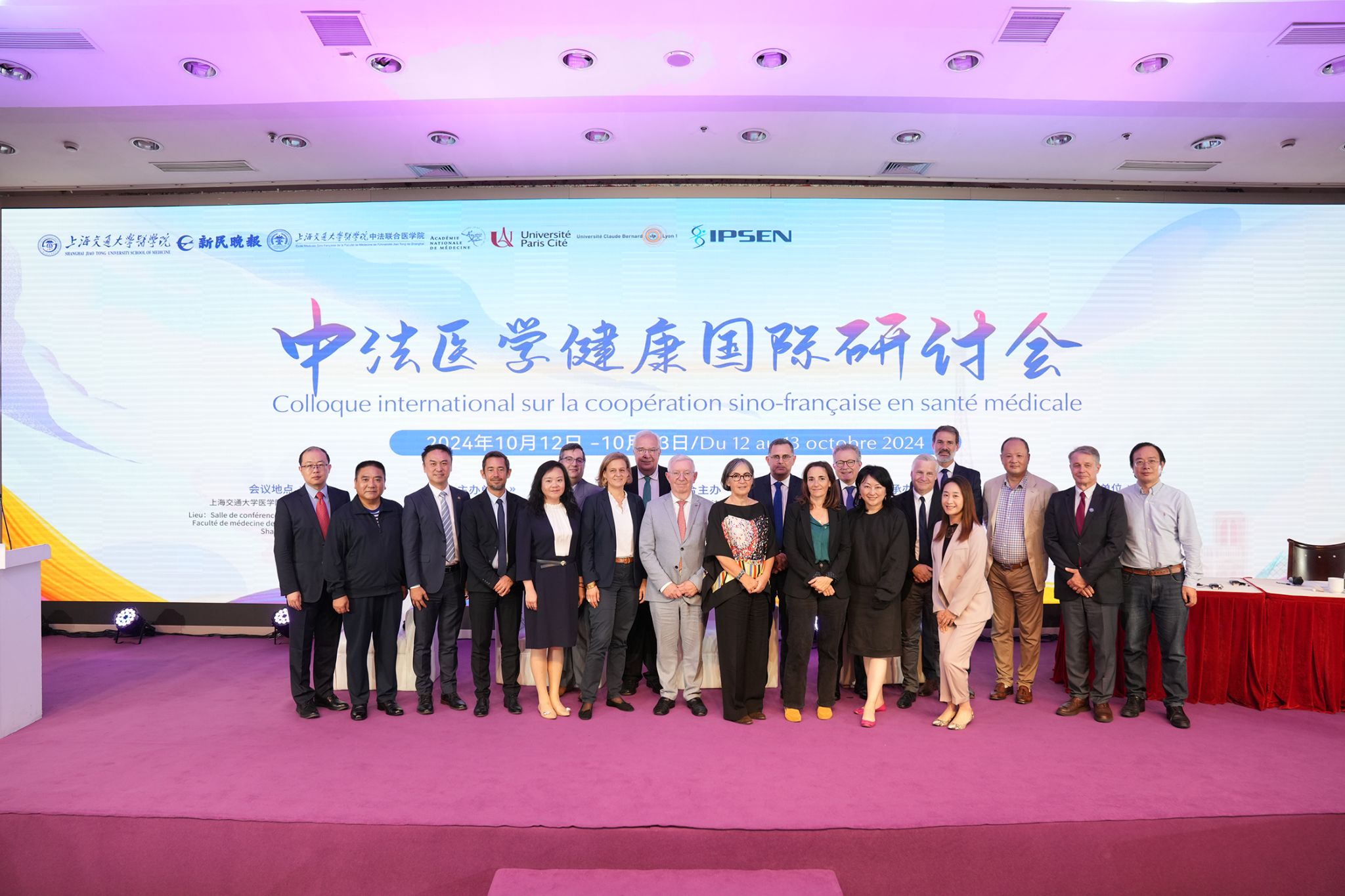
The two-day symposium, centered on “Collaboration, Innovation, Win-Win, and Excellence,” brought together Chinese and French experts and scholars who engaged in in-depth discussions on key topics in medical education, hospital management, and industry-academia cooperation.
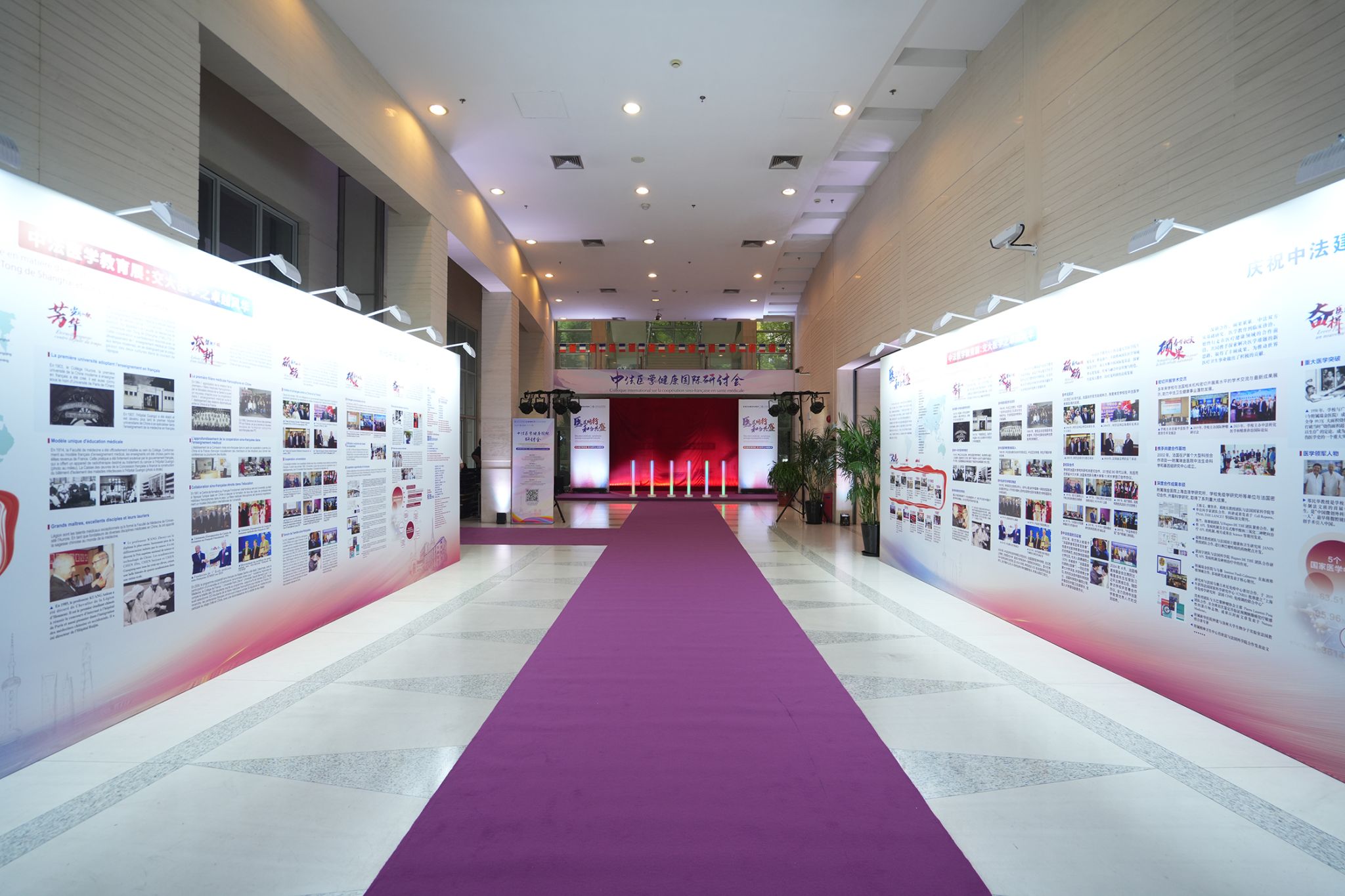
During the symposium, the “China-France Medical Education Cooperation Exhibition” was inaugurated at SJTUSM, showcasing the rich history of cooperation between top medical schools and research institutions in China and France. The opening ceremony was attended by Wu Qianyu, Zhao Wenhua, Shen Baiyong, Romain Jacquet, Joan Valadou, and Gilles Rode, Dean of the East Medical School of Université Claude Bernard Lyon 1.
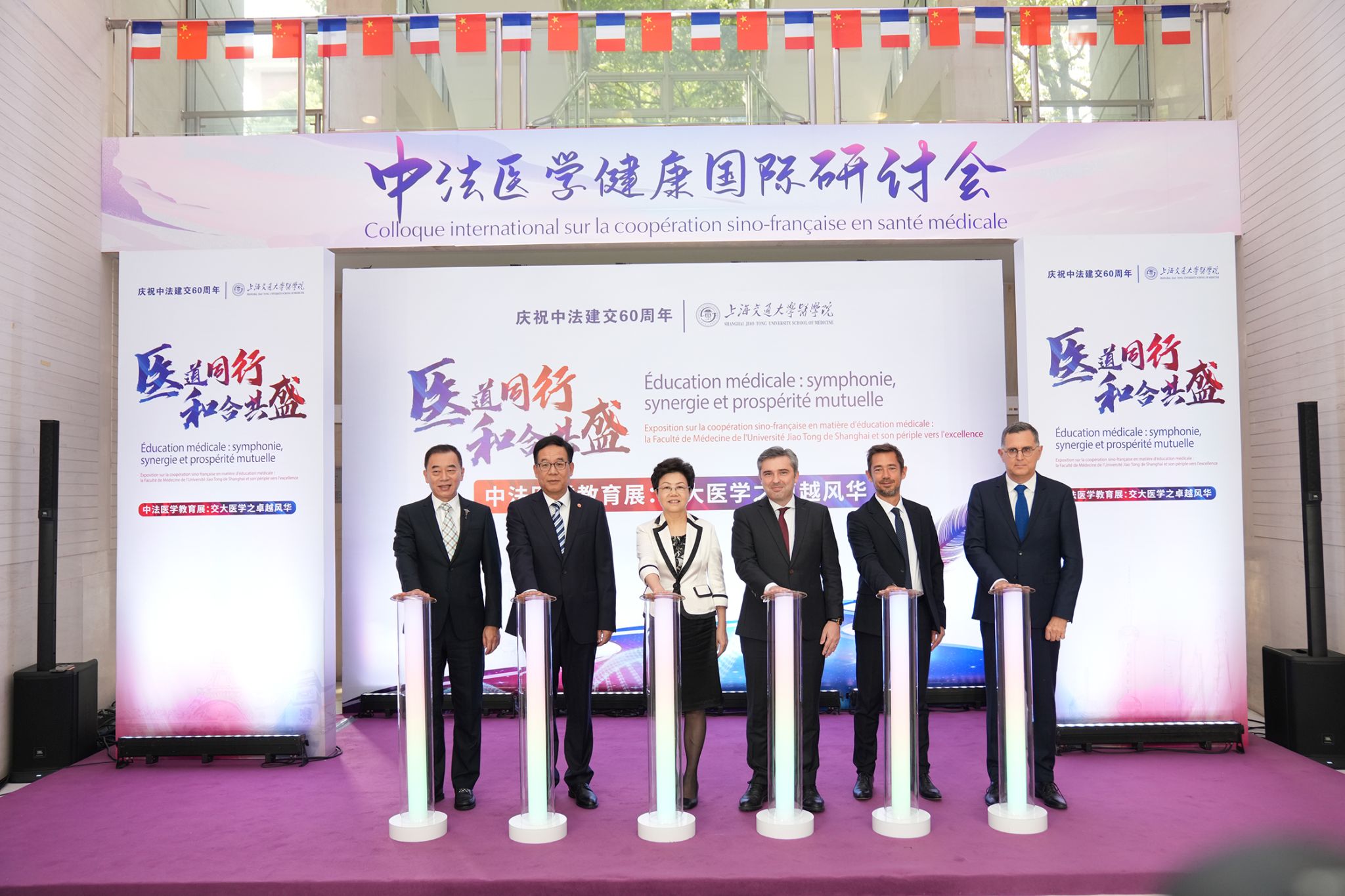
SJTUSM’s collaboration with France began in the early 20th century, starting with the French-language medical education program at its predecessor, the Aurora University School of Medicine, and has become a hallmark of China’s medical education, producing renowned figures like academician Wang Zhenyi, the recipient of Medal of the Republic and China’s highest science and technology award, along with his three students who are also academicians, Chen Zhu, Chen Saijuan, and Chen Guoqiang.
After the formal establishment of diplomatic relations between China and France in 1964, the first French-language clinical medicine program in China was launched at Shanghai Jiao Tong University School of Medicine. In 1997, this program was incorporated into the intergovernmental cultural and educational cooperation projects between China and France. In 2002, the Sino-French Life Sciences and Genomics Research Center was established at Ruijin Hospital, marking the first large-scale Sino-French medical and scientific cooperation project in Shanghai. In October 2018, SJTUSM collaborated with several top French medical schools to establish the "Sino-French Joint Medical School." In 2021, the French-language program in medical laboratory science was launched, enrolling its first cohort and opening new avenues for collaborative training of research talent.
Over the past 60 years, the clinical medicine French program has trained nearly 1,000 outstanding medical students. By the end of 2023, the school had sent nearly 500 students from this program to study in France. Each year, France sends over 30 medical students to Shanghai Jiao Tong University School of Medicine for clinical training, with their internships being officially recognized.
